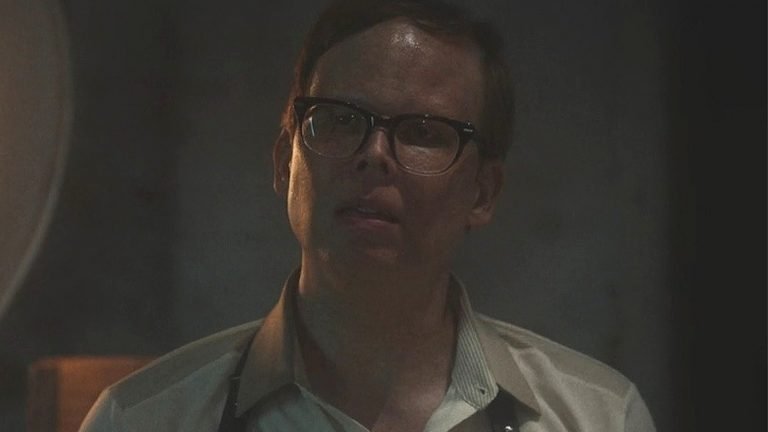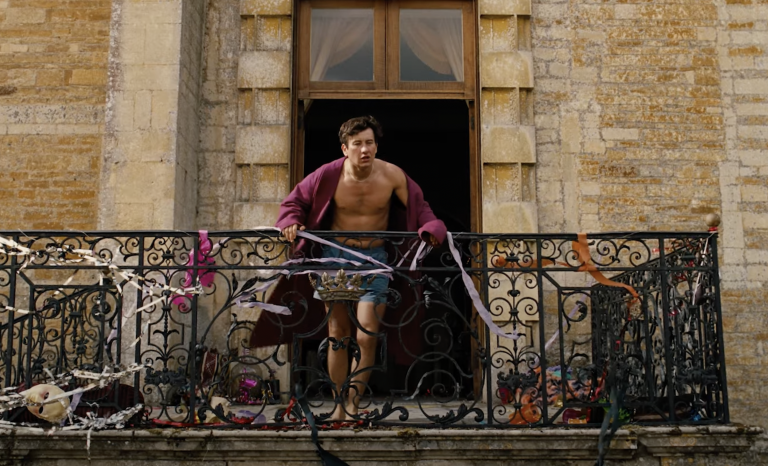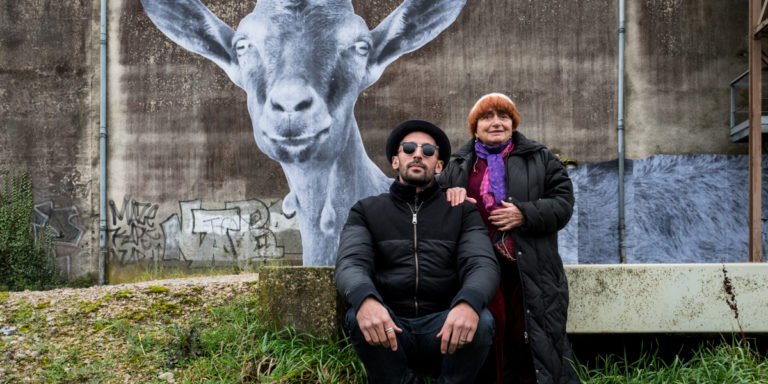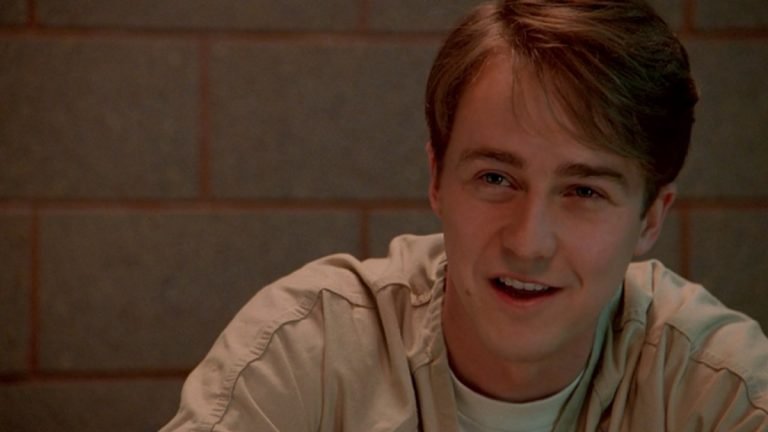The title of the Emma Stone starrer, “Bugonia,” is a Greek word referring to the belief that bees are born out of rotting animal carcasses, especially oxen – a living, fluttering species born out of long-dead, non-living matter. The film’s first frame begins with the bees pollinating the flowers. We see worker bees tirelessly toiling to expand their beehive colony settled on the wooden honeycomb boards. They perform this labour selflessly, gathering thick, golden, translucent honey for the Queen Bee.
Lanthimos sets the stage to ferociously illustrate how human beings are no different from the mindless, buzzing bees. He posits that the world is ultimately an artificial wooden honeycomb shelf dripping with excess honey as the workers gather it for the people in power. And these powerful tycoons aren’t titanic in size or have a lethal sting protruding from their behind, but they wear skin just like us, inhabit organs like us, but they dress in sharp suits rather than black and yellow stripes, and live above rather than amongst us.
While bees are used as metaphors for existentially catatonic human beings, they also play a dual role. The population of bees is also considered a barometer for the world’s environmental balance – more the bees, more the equilibrium in our macrocosm. But as time passed, trees were razed to the ground for developing gargantuan industrial plants and solar panel fields, and the fewer they became in number. The cataclysmic death of the bees is solely for the sake of the development of human beings and their darkening future.
Since the beginning of time, humans have been trapped in their microcosm of pollinating, populating, growing humidity like moss on wet brick walls. And these human beings, especially under the veil of democracy, still feel helpless and powerless, stuck in dead-end jobs in an unsafe environment that pays meager bills to survive a meager life, while CEOs and company executives relish the feeling of cushy, swiveling chairs in their clear glass-walled offices. This specific sentiment, this feeling of injustice that invokes a fire of transgression in the lower and middle class, is what Yorgos targets with a lethal sniper of unflinchingly somber satire.
Emma Stone’s relentless portrayal of Michelle, an accomplished female CEO in the ever-changing, sensitive sociopolitical environment, perfectly encapsulates, in the most literal sense, how ‘alien’ executives are to their employees who hunch over their keyboards for hours in cubicles and workers who pack boxes in a hot warehouse with a bleeding gash still on their palm from a malfunctioning machine.
The social media users storm the platforms, creating memes and conspiracy theories about successful companies’ CEOs who talk in interviews and podcasts like robots, sounding unnatural and completely devoid of emotional expressivity. All they wear is a permanently plastered smile and possess eyes that are filled with synthetic sympathy that radiates through the soul of their workers. Their mouths throw up a somewhat coherent word salad that means nothing and everything at the same time, just so that they don’t even mildly offend a certain culture or sex.
Emma Stone holistically captures all the peculiarities, the eerie cleanliness, and the “off-ness” of rich owners and execs, which contrast the brutal, hardcore, volatile entity that stands before her – Teddy, played by Jesse Plemons, a conspiratorial minded man with long dirty wet honey hair, a tightly coiled mind ready to snap, and a craze in his eyes that Michelle cannot match.

Read: Bugonia (2025) Movie Review: An Acidic Enraged Look at Dehumanization with Ruthless Black Comedy
Teddy, a warehouse worker for Michelle’s company, succeeds in kidnapping her with the help of his on-the-spectrum friend Don, in a plan to expose her as an alien and reveal her true nature. But what if her unnatural nature is her true nature? A highly delusional Teddy and Don undergo bizarre rituals and processes to prove that she is an alien hellbent on destroying Earth with the machine of ‘capitalism’, by making human beings her slaves.
But Don is a soft juxtaposition and simultaneously a mirror to Teddy’s radical beliefs that mold his soul, representing the middle class suffocated between the other two. Michelle is the crème de la crème – the top 1 percent floating atop; meanwhile, what simmers way below is Teddy, a representation of the gnarly rebellion of the lower class. In between the tug of war of the upper class and lower class, the middle class is who suffers a nasty end, mostly because they die without a cause or a purpose.
They work soul-crushing jobs that fill stomachs and keep the lights on, send their children to study subjects they don’t like, so then they can work and earn money for their own kids. But what they don’t know is the time and effort they put together – only an inscrutably small percent goes to their own interests and fulfillment, while the rest of the blood, sweat, and tears they shed is to gather the pollen for the Queen bee, forever. And the only way to escape the torturous cycle is death or surrender.
But Teddy would rather go out with an intergalactic bang than fade away to nothingness in the cosmic background. The film doesn’t just stress the stark contrast between the lower and upper class economy, but also on the thick line distinguishing their morality, their personalities, and their ‘dialogue’, ultimately making both the classes look at each other as inhuman – one is as disposable as a lab rat, and the other is inhumanely indispensable. So, all the bloodshed is for the sake of bridging that gap, or burning the damn bridge altogether.
The existence of the bourgeoisie and the proletariat, as Marx believed, will always lead to conflict, and it did. All warm flesh bits and blood were shed in the name of hatred. But “Bugonia” never favors communism, authoritarianism, or even dictatorship. All the steam power it has is directed towards critiquing capitalism’s injustices towards Teddy and how poverty leads to heartbreakingly desperate measures.
This manifested as his ailing mother becoming a test subject to horrifying clinical trials operated by Michelle’s company to develop a ‘cure’. It ultimately leads to the formation of Teddy’s unbearable trauma, now fossilized under the heaping, delusional debris of 3D spaceship models, the hypotheses of the Andromeda galaxy, and the supposed “Andromedans”, and almost a militia-like directive towards capturing aliens.
As the film reaches its climax, Michelle confesses to being an alien and reveals the folly of human beings, of an evolution gone horribly wrong, and how she and a group of aliens were sent to earth to ‘rectify’ it, or free it from such an oppressive, killjoy of a system. In the film, this philosophy was a bedrock of lies to lure Teddy in, but the core of those soft-laced lies led back to the ill-fated history of colonialism, racism, and slavery.
It mirrors how certain countries conquered other countries in the past, under the guise of “development”, only to exploit them for their own gain. Even though Michelle might be an alien, selfishness and survival are the only humane characteristics she has developed by living and hiding for so long on Earth.
Teddy realized after the brutal onslaught of the trauma that he had become a slave for the Queen Bee. Subconsciously, he never truly cared about Michelle being an alien. The alien conspiracy was just a ploy to abduct her with a justifiable motive, without ever cracking open the locked drawer of his trauma. He only wanted to bring her pain and suffering, welting her spotless skin, shining from expensive cosmetic regimens.
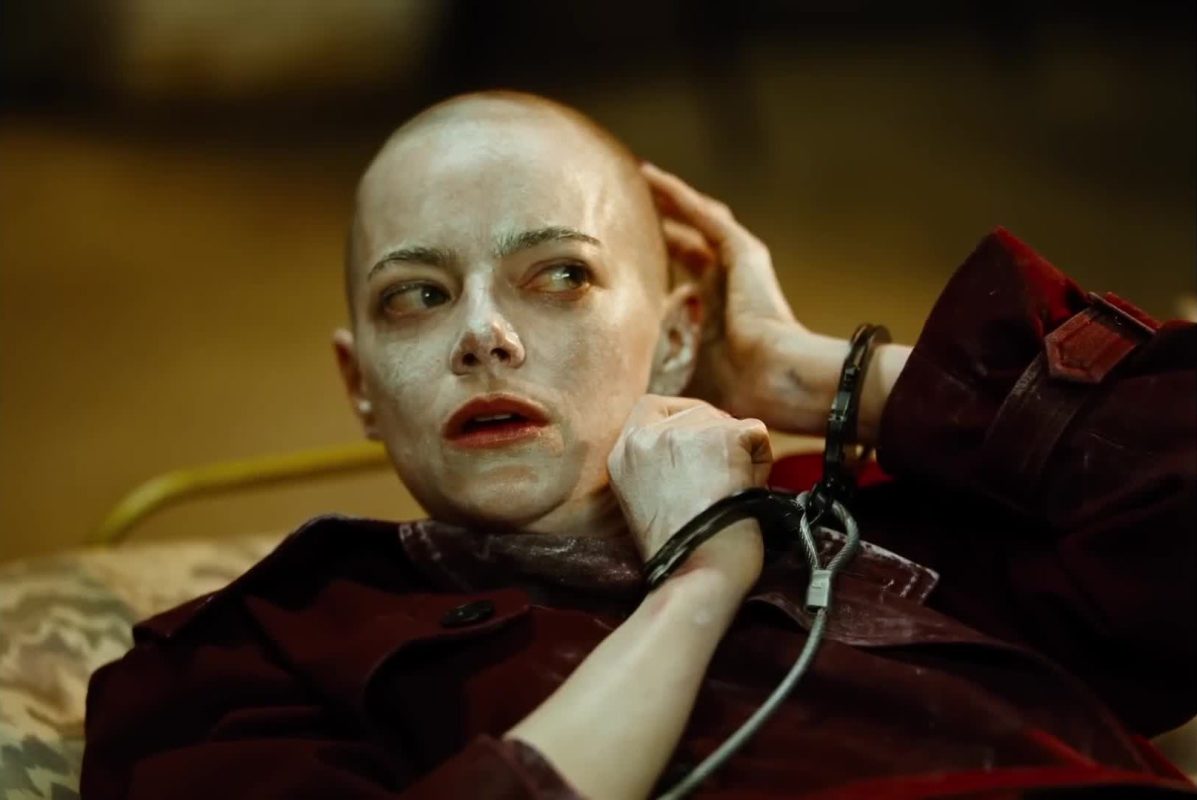
Also Read: How Faith Ironically Becomes the Real Revolution Against Capitalist Excess in Wes Anderson’s ‘The Phoenician Scheme’
Lanthimos expertly makes sure that nobody is excessively antagonized. He does this by deftly creating pocketed intervals of doubt for the audience so that their suspicions oscillate between Michelle being an actual alien and Teddy being a disgruntled, psychopathic conspiracy theorist, too in deep for his own good.
Will Tracy, the screenwriter who also wrote “The Menu,” conveying the “Eat the Rich” sentimentality through gourmet food, this time uses hefty, grandiose vocabulary in “Bugonia.” His dialogues explore grand ideas of nodding and understanding at one moment, and then far-stretched propositions of rebellion from opposing sides the next – that again, do not really mean anything in essence. This highlights the satire of how far detached they both are from the middle class’ actuality, in equal distance.
“Bugonia” is not a manifesto of destruction caused by capitalism, or a moralistic film summarizing the struggles of the lower and middle classes. It’s fundamentally a diorama of a 118-minute story taking place in a two-story farmhouse with three characters, if you see it as what it is. But if you tilt its dimensions and look deeper, it ends up revealing the true nature of humanity – of all the seven billion people through millions of years of evolution. Humanity isn’t holistic or all-encompassing; it’s divided into levels with ruthless precision – of sex, socioeconomic status, culture, drive, and bravery.
Lanthimos paints his frames with two primary shades for the world of “Bugonia” – the nasty, sickening yellow of Teddy’s kitchen and basement that makes your stomach churn, and the devilishly cold, sliced brown pillars, expansive off-white of Michelle’s office that makes you shudder at its size. It is a master stroke in delivering the extreme whiplash between breathless claustrophobia and constant dread.
Though it doesn’t reach the explicit display of the theme of class struggle like “Parasite” does, it still succeeds in wrapping a riveting battle of the rich and the poor into an intimidating science-fiction thriller. Throughout the runtime, it holds your head under mossed old water of tension. Sudden outbursts of violence and music constrict your own throat as the characters gnaw at each other’s.
Stone and Plemons expertly bounce off each other’s anticipatory moments and subvert the audience’s expectations of events till the very end. Teddy’s bravado, or one must even say – stupidity, makes him wrap himself in a flimsy, sketchy suicide bomb in case Michelle pulls a fast one before she transports him into the spaceship. At the end, his homemade bomb blasts him to pieces, as his severed head, full of anger, revolution, and nasty hatred, blasts out of his body and throws Michelle down onto the floor, toppling her position, her power, even if for a moment.
During the last moments, as Michelle returns to her ship in her alien attire, she declares the human race a complete failure. With a stab of her bone-shaped specter, she bursts the dome of ‘life’ represented by a clear, smoky bubble, and all the human beings cease to exist. Their consciousness is wiped out in a nanosecond, and they drop like flies while performing the mundane tasks that once filled their lives—driving, studying, marrying, having sex, working on an assembly line—as curious animals lick their still-warm corpses.
At the end, it could be said that all humans, despite the boundary of class and all other divisions we can think of, are all just specks of bees fluttering on a honeycomb earth, pollinating, and are equal in one fateful element – death. But this is paradoxically proven contradictory as the emperor alien in the skin of Michelle, the Queen Bee herself, decides to wipe out humans from the earth. This just goes to show that superior creatures are still holding the unyielding power over the existence of us — the ‘lesser’ mortals. The last image you see of “Bugonia” is Bugonia itself – bees pollinating, arising out of thin air, or rather from rotting, and maggot-infested brown flesh.
If you go back to the starting point of evolution, the origin of life, it all starts with something magnificent. We are conjured out of a non-living entity, too, in a vast vat of primordial water. A tadpole once bloomed there from perfect chemistry, sunlight, and chance, growing into the most intelligent beings that now govern this big blue spot. We went through an exhaustingly long abiogenesis only to end with extremely easy, borderline pathetic extinction; a shame to a grand beginning. But who’s to say we won’t arise like those bees again? And then become human, and gather pollen for the Queen Bee, only to be wiped out again.



